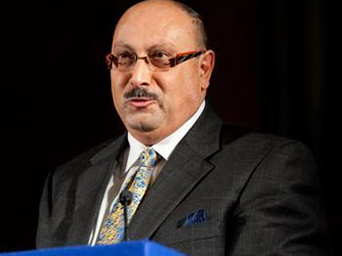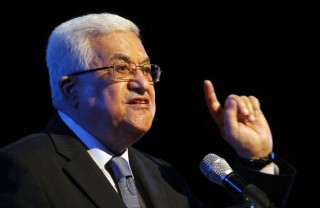
When will the Palestinians clear the decks for action?
by Stuart Littlewood
I watched the Palestinian ambassador, Prof Manuel Hassassian’s performance before a session of the House of Commons Foreign Affairs Committee enquiring into ‘Israel and the Occupied Palestinian Territories: prospects for 2014’.
http://www.parliamentlive.tv/Main/Player.aspx?meetingId=14617 .
He was asked by MP Rory Stewart: “Why did you come back to the negotiating table?” Hassassian replied: “The PLO since 1988 has committed itself to the recognition of the state of Israel and to a two-state solution. And in 1993 we reiterated our commitment believing that the only way out of this conflict is by negotiation.”
This belief, he seemed to be saying, persists despite Israel not complying with agreements that had been signed and despite the Palestinian government not knowing what the future holds if Israel continues with its expansionist policies – and especially its illegal ‘settlement’ programme – which it clearly will do unless firmly checked.
Throughout he was careful not to mention the international law option, nor did he utter the dreaded “J” word (Justice), as far as I recall.
Given the decades of painful failure trying to find a way through the ‘peace process’ cul-de-sac, switching focus to the International Criminal Court, as suggested in the ‘Sabeel’ letter, makes sense (see recent article ‘Help prod the ICC into action over Israel’s illegal settlements – The Palestinian leadership won’t do it – will you?’). The letter campaign urges the ICC to investigate the many charges of war crimes relating to Israel’s ‘settlements’ on territory under its “belligerent occupation” and the transfer of large numbers of the Israeli population into them.
The letter arrived in my inbox out of the blue with an invitation to copy, sign and post it to the ICC. Efforts to trace its origin have failed, although it seems to have come from Sabeel’s autumn conference in Jerusalem. No matter, it adds up, makes sense and hits the nail on the head.
The authors are evidently tired of waiting while Israel’s encroachments and brutality continue. The thrust is to persuade the ICC, in the absence of any positive move by the PA/PLO, to take the lead using the mountain of evidence assembled by various UN bodies and, of course, Goldstone.

Granted, there may be only a slim chance of such a thing happening, but it is important to explore the possibility in the hope that those with a stake will join together and make “public expressions”, as someone put it. It would at least unite the different strands of sympathy and support in a purposeful way.
But not everyone agrees with the ‘Sabeel’ initiative. A law professor wrote to say that the Office of the Prosecutor will not consider investigating Israeli crimes “until the new Palestinian leadership either files another ad hoc declaration or ratifies the Rome Statute”. Letters therefore would be better addressed to the Palestinians themselves. “The Office of the Prosecutor will simply ignore them.”
He did not explain what he meant by a “new Palestinian leadership” or whether this was something we could look forward to in the near future.
I imagine everyone concerned is aware that the Palestinians have to do more paperwork and ratify the Rome Treaty. What angers activists is that the leadership, having been out-smarted and humiliated so many times, still don’t appear to have cleared the decks for action.
And is it not a waste of time writing to the likes of President Abbas with his record and threadbare legitimacy? The never-ending deadlock cannot remain the private playground of stooges and quislings. Many campaigners therefore feel that engaging international law should have been done from the start, and publicising such a move now will highlight the absurdity of the current situation and set the ball rolling in a more productive direction.
Nothing else has succeeded in 66 years. And if the Office of the Prosecutor does, in the end, ignore the concerns of civil society, that will make headline news which should serve as an springboard if handled properly.
Another critic says that according to his reading of the Rome Statute the ICC has no legal powers to undertake legal actions against Israel, and Palestine cannot approach the ICC for crimes committed before 29 November 2012, the date the UN General Assembly upgraded Palestine’s status to “non-member observer state”.
Even if the scope is limited to crimes since November 2012, isn’t the effort worth it
Time the law kicked in
A third critic has suggested that the proper course would be to bring pressure on all governments to demand that Israel abide by already agreed principles. Ending the Occupation and removing the settlements must come first. “To demand that a defenceless occupied people negotiate, under fearful duress, with their oppressor flies in the face of natural justice.”
That might be the ideal course, but is civil society sufficiently organised and orchestrated to apply the necessary pressure on world governments? Yet another argued that nothing should be done until the present round of talks has finished, in case we undermine them.
Aside from the fact that the Israelis have utterly destroyed any credibility the talks might have had, the process is due to end in April, which is not far off, and chief negotiator Saeb Erekat has sworn it will not be extended by even one minute.
In the meantime the PA must prepare if they are to be ready to file claims at the ICC in May. There is no sign that a start has been made, so we might as well give them a gentle poke. And campaigners might as well notify the ICC that it’s time the law kicked in.
‘No authoritative explanation of ICC passivity…’
Critics might like to read what another law professor, UN special rapporteur Richard Falk, recently said in an interview with me……
Q – How acceptable is it for a weak, demoralized and captive people like the Palestinians to be forced to the negotiation table with their brutal occupier under the auspices of a US administration seen by many people as too dishonest to play the part of peace broker?
Richard Falk – Even if the United States was acting in good faith, for which there is no evidence, its dual role as Israel’s unconditional ally and as intermediary would subvert the credibility of a negotiating process. In fact, the US Government signals its partisanship by White House appointments of individuals overtly associated with the AIPAC lobbying group as Special Envoys to oversee the negotiations such as Dennis Ross and Martin Indyk… The unsatisfactory nature of the current framework of negotiations is further flawed by weighting the process in favor of Israel, which enjoys a position of hard power dominance.
Q – There can be no peace without justice, so is it right for final status ‘negotiations’ to be held before competing claims are tested in the courts and the many outstanding rulings under international law and UN resolutions are implemented? In any case, shouldn’t a neutral UN peace commission be supervising the final settlement of this long struggle, rather than the US or the Quartet?
Richard Falk – Yes, if the priority were to attain a just and sustainable peace, a framework would be developed that had two characteristics: neutral as between the two sides and sensitive to the relevance of rights under international law. Such sensitivity would favor the Palestinians as their main grievances are all reinforced by an objective interpretation of international law, including in relation to settlements, Jerusalem, refugees, borders, water.
Q – Turning to the role of the International Criminal Court, this is an organ of the UN. So why doesn’t the ICC initiate its own prosecution of Israeli crimes based on UN reports and the mountain of evidence available to it, especially in view of Palestine’s upgraded status?
Richard Falk – There is no authoritative explanation of ICC passivity in face of the Israeli criminal violation of fundamental Palestinian rights. As a matter of speculation it is plausible to assume an absence of political will on the part of the prosecutor’s office to initiate an investigation that would be deeply opposed by Israel and the United States.
In the long struggle for justice more leverage must be found…. BDS is successful but slow, and not enough on its own. The ICC is the correct way to go if it’s justice you want, and the spotlight surely ought to shine into its dusty corners. But does anyone know for sure if the Court could take action on its own initiative?
Our politicians, however, are still happy for Kerry, Netanyahu and Abbas to ponce around the international stage indefinitely, achieving nothing except buying more time for still more injustice… and for Israel to establish the irreversible facts on the ground it needs to make the Zionist occupation permanent. The British Government especially has its head in the sand. Foreign Office minister Hugh Robertson says:
“Britain strongly supports the Secretary Kerry-led negotiations between Israelis and Palestinians to achieve a historic peace settlement… I am however deeply concerned by Israel’s decision to announce further settlement building in East Jerusalem and the West Bank.
As we have repeatedly made clear, the UK condemns settlement activity, which is illegal under international law, undermines trust and threatens the viability of the two-state solution. We urge Israel not to proceed with the proposed settlement building. Important progress has been made in recent months, and we encourage both sides to continue to show the courage and bold leadership needed to take the difficult steps towards peace. The UK stands ready to help.”
Courage and bold leadership are precisely what’s lacking. And we never hear of firm action to halt the settlements, which are such a glaring obstacle to peace.
I have just seen a report http://news.xinhuanet.com/english/world/2014-01/14/c_125998432.htm about decision by the PLO to prepare applications for membership to (unspecified) UN bodies, but it’s so vague as to be useless. Until the ICC is put to the test on the Palestinian issue it’s integrity and usefulness will never be known. And until the PLO makes it clear to everyone that that’s their next stop, I for one can’t take them seriously.
An article penned two and a half years ago might be worth revisiting… The International Criminal Court – Help or Hindrance?
or
The International Criminal Court – a help or a hindrance?
It provides a link to Sadaka www.sadaka.ie. While there, do take time to read their excellent briefing: ‘Without external pressure on Israel, a Palestinian state is unattainable’. http://www.sadaka.ie/Articles/Briefings/BRIEFING-Palestinian-state-unattainable.pdf
Editing: Jim W. Dean
__________________________________

After working on jet fighters in the RAF Stuart became an industrial marketing specialist with manufacturing companies and consultancy firms. He also “indulged himself” as a newspaper columnist. In politics, he served as a Cambridgeshire county councilor and member of the Police Authority. Now retired he campaigns on various issues and contributes to several online news & opinion sites. An Associate of the Royal Photographic Society, he has produced two photo-documentary books – Paperturn-view.com.
Also, check out Stuart’s book Radio Free Palestine, with Foreword by Jeff Halper. It tells the plight of the Palestinians under brutal occupation and explains to me why the Zionists who control Israel should be brought before the International Criminal Court.
Stuart’s Very Latest Articles: 2023 – Present
ATTENTION READERS
We See The World From All Sides and Want YOU To Be Fully InformedIn fact, intentional disinformation is a disgraceful scourge in media today. So to assuage any possible errant incorrect information posted herein, we strongly encourage you to seek corroboration from other non-VT sources before forming an educated opinion.
About VT - Policies & Disclosures - Comment Policy



